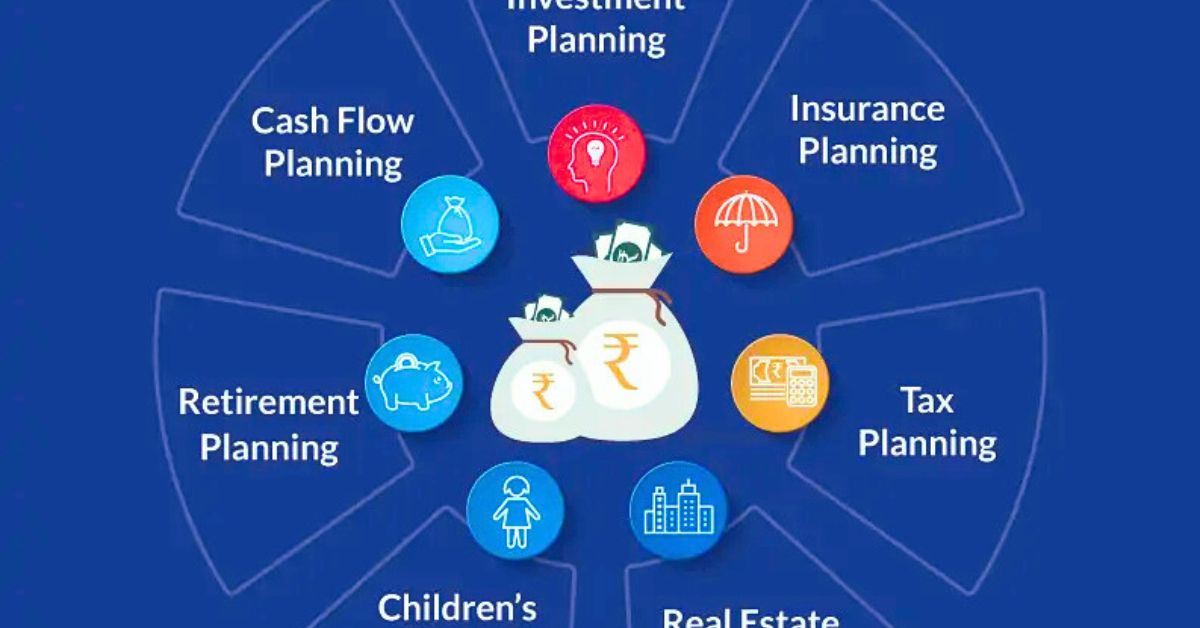Starting your financial journey can feel confusing. Many people struggle with saving, spending, and setting goals for the future.
This guide on financial planning for beginners will help you understand key money management basics. You’ll learn to budget, save, invest, and plan ahead smartly.
Keep reading to discover simple, step-by-step financial tips you can apply today. Whether you’re just starting out or need a reset, this guide is for you.

Why Financial Planning Matters
Financial planning gives you control over your money. Without a plan, it’s easy to fall into debt or run out of funds unexpectedly.
Planning helps you make better decisions. You’ll know where your money goes, how to grow it, and how to avoid unnecessary stress.
A smart financial plan ensures long-term security. It helps with emergencies, big life goals, and achieving financial independence.
Set Clear Financial Goals
Start with specific goals. Want to pay off debt, buy a car, or save for travel? Write it down.
Short-term goals take less than a year. Long-term goals may take five years or more.
Use the SMART method: make goals Specific, Measurable, Achievable, Relevant, and Time-bound.
Build a Basic Budget
A budget is your spending plan. Track income and expenses each month.
Use simple methods like the 50/30/20 rule: 50% for needs, 30% for wants, 20% for savings.
Apps like Mint or YNAB can help manage your budget easily.
Track and Cut Expenses
Review your spending habits. Look for areas where you overspend—like eating out or subscriptions.
Reduce or eliminate non-essential spending. Every dollar saved adds up over time.
Use cash or debit to avoid overspending. Stay within your budget limits.

Build an Emergency Fund
Set aside money for unexpected events like job loss, medical bills, or car repairs.
Aim to save at least 3–6 months’ worth of living expenses.
Keep the fund in a separate high-yield savings account for easy access.
Understand Debt and Credit
Not all debt is bad. Some loans, like student loans or mortgages, can be helpful.
Know your credit score. Check reports from Experian, TransUnion, and Equifax.
Pay bills on time and reduce high-interest debt first to improve your credit.
Start Saving Early
The sooner you save, the more your money grows with compound interest.
Automate savings from each paycheck. Even small amounts add up.
Use savings accounts, CDs, or money market accounts for short-term goals.
Learn Basic Investing Terms
Investing helps grow your wealth faster than saving alone.
Understand stocks, bonds, ETFs, and mutual funds. Diversify to manage risk.
Use beginner platforms like Vanguard, Fidelity, or Robinhood to start small.
Retirement Planning Basics
It’s never too early to plan for retirement.
Open a 401(k) or IRA. Contribute regularly—especially if your employer offers a match.
Use compound growth to your advantage over decades.
Insurance for Protection
Protect your finances with proper insurance: health, auto, home, and life.
Insurance covers large unexpected costs and keeps your plan on track.
Compare policies and shop for best rates online.
Create a Monthly Review Habit
Track progress monthly. Review spending, savings, and goals.
Adjust your budget and plans based on changes in income or expenses.
Regular reviews help you stay in control and improve over time.
Use Financial Planning Tools
Tools and apps make managing money easier.
Try apps like PocketGuard, Goodbudget, or spreadsheets.
Choose tools you enjoy using consistently.
Avoid Common Money Mistakes
Don’t ignore credit scores or overspend using credit cards.
Avoid get-rich-quick schemes or risky investments.
Stick to your goals and stay consistent for lasting success.
Seek Financial Advice if Needed
Sometimes professional help is worth the cost.
Certified Financial Planners (CFPs) can give personalized advice.
Use trusted sites like to find help.
Stay Financially Informed
Keep learning about personal finance. Read blogs, listen to podcasts, or follow experts.
Check reliable sources like.
Knowledge helps you make smarter choices over time.
Conclusion: Start Planning Today
Financial planning for beginners doesn’t have to be hard. Start small with goals and budgets.
Build good habits—track spending, save regularly, and review often.
Stay committed, keep learning, and secure your financial future one step at a time.
External Links:
- Investopedia: Financial education and investing guides.
- NerdWallet: Personal finance advice.
- CFP Board: Find certified financial planners.










